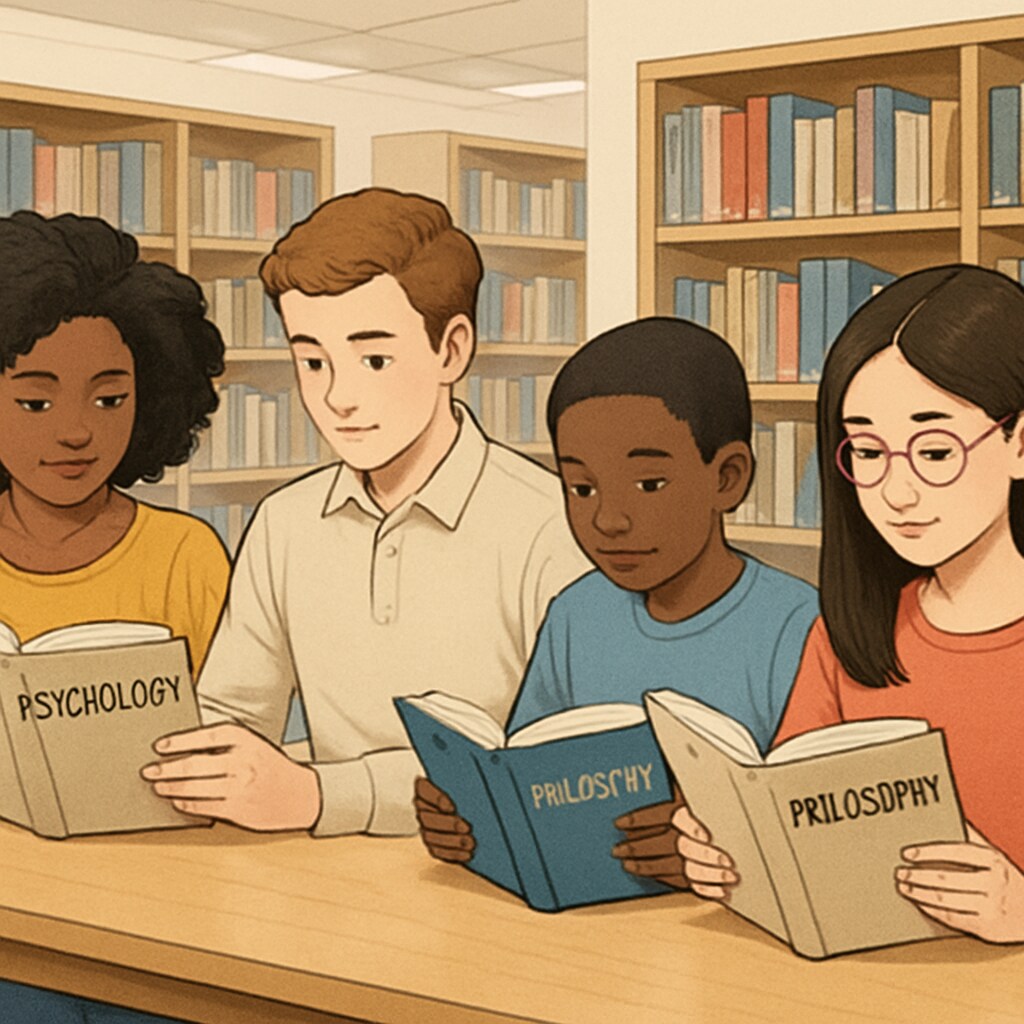In the midst of rigorous academic demands, K12 students often overlook the enriching world of psychology and philosophy. However, these disciplines can greatly enhance critical thinking and emotional intelligence—essential skills for lifelong growth. By exploring non-academic methods such as age-appropriate books, interactive activities, and online resources, young learners can unlock the doors to these fascinating subjects. This guide provides practical strategies to help K12 students embark on their journey of self-discovery and intellectual curiosity.
Why Psychology and Philosophy Matter for K12 Students
Psychology, the study of the mind and behavior, and philosophy, the exploration of fundamental questions about existence and ethics, can significantly benefit young learners. These subjects encourage students to think critically, analyze their emotions, and understand diverse perspectives. While schools may not prioritize these fields in standard curriculums, parents and educators can introduce them in more informal, engaging settings.

Engaging Books for Young Minds
Books are an excellent starting point for introducing psychology and philosophy to K12 students. Look for engaging titles that simplify complex ideas without diluting their essence. For example:
- Psychology: “The Psychology Book” by DK offers a visually appealing overview of psychological concepts.
- Philosophy: “The Philosophy Book” by DK or “Sophie’s World” by Jostein Gaarder introduces young learners to philosophical ideas in storytelling formats.
Additionally, parents and educators can read these books alongside students, initiating discussions to help connect the material to real-life situations.
Interactive Activities to Spark Curiosity
Hands-on activities can make psychology and philosophy more relatable and fun. Here are a few ideas:
- Psychological Experiments: Simple experiments, such as testing memory with flashcards or exploring optical illusions, allow students to experience psychological principles firsthand.
- Philosophical Debates: Encourage students to debate ethical dilemmas, such as “Should we always tell the truth?” These discussions foster critical thinking and moral reasoning.
- Journaling: Students can reflect on their thoughts and emotions in journals, promoting self-awareness and emotional intelligence.
These activities can be tailored to different age groups, ensuring that they remain both challenging and enjoyable.

Leveraging Digital Tools for Learning
The digital age offers a wealth of resources for exploring psychology and philosophy. Consider the following platforms:
- Khan Academy: Free courses on psychology and other subjects, tailored to K12 learners.
- Stanford Encyclopedia of Philosophy: A comprehensive resource for understanding philosophical concepts.
- Educational apps like “Headspace” (for mindfulness) and “TED-Ed” (for philosophical topics) make learning accessible and engaging.
Parents and educators should guide students in selecting age-appropriate content, ensuring a positive and enriching learning experience.
Developing Lifelong Skills Through Exploration
By exploring psychology and philosophy, K12 students can develop critical skills that extend beyond academics. These include:
- Critical Thinking: Analyzing information and forming independent opinions.
- Emotional Intelligence: Understanding and managing emotions effectively.
- Ethical Reasoning: Reflecting on moral questions and making thoughtful decisions.
Incorporating these disciplines into their lives equips students with tools for personal growth, academic success, and meaningful engagement with the world around them.
In conclusion, while traditional education may not always emphasize psychology and philosophy, non-academic approaches can ignite a passion for these subjects among K12 students. By leveraging books, activities, and digital resources, young learners can embark on a journey that enriches their minds and hearts. After all, the pursuit of knowledge and self-awareness is a lifelong adventure worth beginning early.
Readability guidance: This article uses short paragraphs, lists, and transitional phrases to maintain a clear and engaging narrative. It avoids jargon while introducing key concepts in an accessible manner for K12 students and their mentors.


